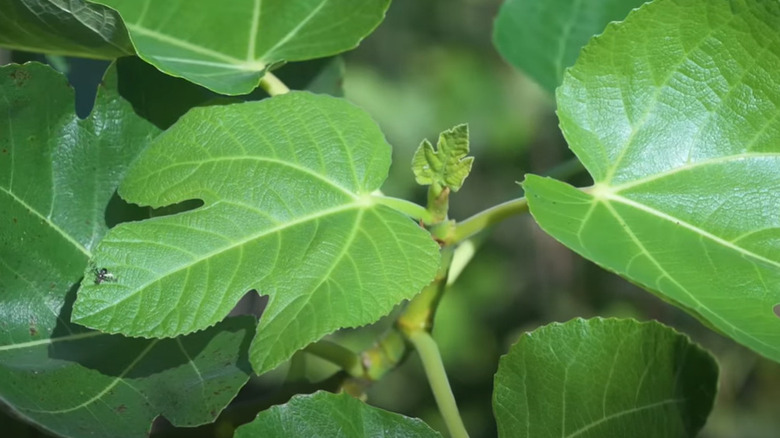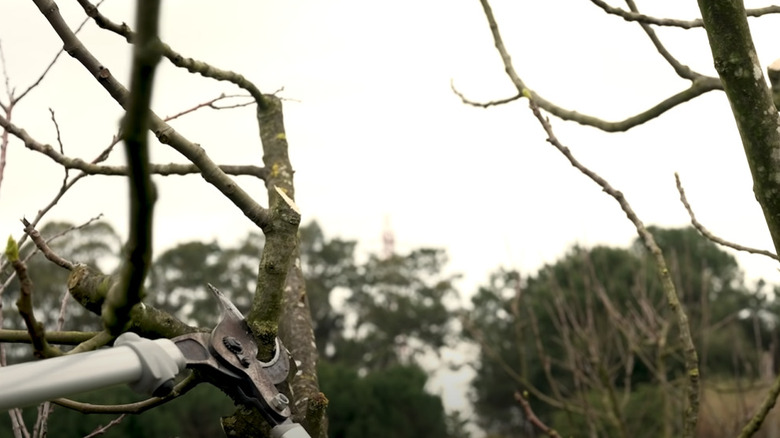We may receive a commission on purchases made from links.
Fig trees, with their massive leaves, bring a tropical element to any space. In addition, these botanical wonders typically defy the hardships of arid conditions, raising the bar for what you’d expect from trees for a small garden. However, if unchecked, this tree’s vigor means it can grow into a leafy shrub or an expansive being. As such, pruning becomes an integral part of the fig tree maintenance routine. So, when should they be pruned — late winter and late summer stand as your prominent options.
Choosing between these fig tree trimming seasons is contingent on your goals, whether stimulating branch growth or instigating fruit production. Yet, as we focus on the when it would be remiss not to address the how. Pruning a fig tree properly is a combination of art and science. Much like a painter with a blank canvas, how you prune your fig tree will determine its success in the garden. Get the technique and tools right, and witness your fig tree’s growth, adjusting its size and shape to your liking, and ensuring a continual bounty of its succulent fruits.
When to prune a garden fig tree

JSacadura/YouTube
The prime time to prune your garden fig tree boils down to your objective. If honing the tree shape or sparking a surge of fresh growth is your endgame, the chill months of late winter or the blooming period of early spring is your best bet. These winter months render the tree dormant (a kind of deep slumber), ideal for mitigating pruning stress. At this stage, the tree is primed for faster wound healing, and the risk of sap bleed-out is virtually non-existent.
But what if you want to evoke fruit-bearing shoots? In this case, it’s better to perform a gentle pruning in the height of summer, ideally in balmy July. But be cautious — summer trimming could spiral into excess sap loss if carried too far and risk weakening your green giant. So, when should you not prune a fig tree? That would be early winter before the tree retreats into its dormancy, as it could heighten its susceptibility to cold temperatures. Also, sidestep late spring, when new growth is revving up. Like an overzealous mid-summer pruning, trimming during this period could cause dramatic sap losses, leaving your fig tree gasping for breath.
How to prune a garden fig tree like a pro

JSacadura/YouTube
Kick-off by assembling the right tools for pruning a garden fig tree. Bypass pruners, like the Fiskars 5/8 inch Bypass Hand Pruning Shears from Home Depot, or Anvil pruners like Woodland Tools Co. Heavy Duty Pruning Shears on Amazon have you covered. For thicker branches, enlist lopping shears or a pruning saw. According to a study by the Indian Journal of Dermatology, the tree’s sap might irritate your skin, so deck yourself in a pair of solid gloves. Moreover, the glue can make your pruning tools sticky and blunt — a cloth rag and solvent like vinegar or rubbing alcohol will come in handy.
Start pruning your fig from the base, working upwards. You first strike the suckers at the tree’s base to ensure the tree focuses all energy on the upper branches. Any dead, diseased, broken, and low-hanging branches should also be removed. Moving on to the open canopy, deal with the crooked, overlapping, or crossed branches, which ensures effective airflow and vital sunlight penetration. As for spring trimming, exhibit caution with the fruitlet-bearing shoots — those youthful rookies are the bearers of the future harvest, so give them plenty of room to thrive.



